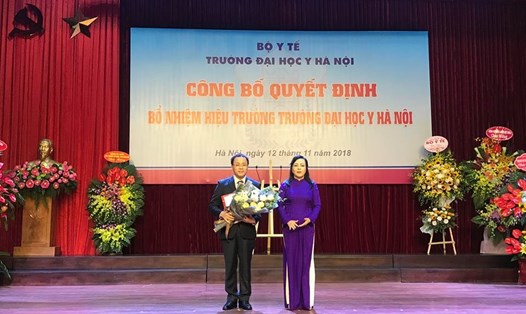Most famous for his micro-differential equations
When winning the award, Uhlenbeck was cited for her pioneering achievements in microfycial methods, measurement theory, integrated systems, and her fundamental impact on analysis, grammar, and physical and Mathematical physics.
Her work has been recognized as one of the most important in the field of 20th-century toancture, creating a hydrological revolution.
Dream of becoming a scientist before becoming passionate about Mathematics
According to BBC, Uhlenbeck wanted to become a scientist at a young age. She majored in physics at the University of Michigan. Here, the female professor discovered the intellectual challenges of pure Mathematics, orienting her future academic path. She was attracted to Mathematics and decided to change careers.
Efforts to find a full-time job
After graduating from the University of Michigan with a degree in Mathematics in 1964, Professor Uhlenbeck continued his studies at Courant Academy in New York. There, she met and married her husband, physiologist Olke C. Uhlenbeck, in 1965. When he arrived at Harvard, she moved to the final and resumed her studies at Brandeis University, earning a master's degree (1966) and a doctorate (1968).
After receiving her PhD in 1968, she went to Massachusetts Institute of Technology and then Berkeley. She wrote about the struggle to find a fixed position in a book in 1977: When I found a job after a year in Massachusetts and two years in Berkeley, I discovered that no one hired women. They thought that women's job was to work at home and have children. So they only care about my husband and don't care about hiring me."
In 1971, Uhlenbeck was invited to become an assistant professor at the University of Illinois, Urbana-Champaign. This time, her husband moved in with her. However, the marriage ended a few years later, Uhlenbeck joined the department at the University of Illinois-Chicago. After a time at schools in Illinois, her career really took off.
praise is spreading everywhere for Uhlenbeck's latest achievement
Uhlenbecks research has led to groundbreaking advances in the intersection of Mathematics and Physics, says Paul Paul Goldbart, department head of the University of Texas School of Natural Sciences. Her pioneering understanding can be applied in a wide range of topics, from string theory to explaining the nature of reality, to the grammar of space - time.
Professor Jim Al-Khalili, a physicist at the University of Surrey, told BBC: Uhlenbeck has become a model in the field of Mathematics. Young Mathematicians not only know about her work, but also know how much she has put in to try to promote Mathematics and encourage young women to participate in this field.
The first woman to win the Able award
With her own efforts and talent, Professor Karen Keskulla Uhlenbeck is the first woman in history to win the noble Abel Award worth 6 million Norwegian kroner (about 700,000 USD).
The Abel Award recognizes contributions to the field of modern economics with great depth and influence. The award takes place annually in Oslo by Emperor Harald V, and is managed by the Norwegian Academy of Sciences.








